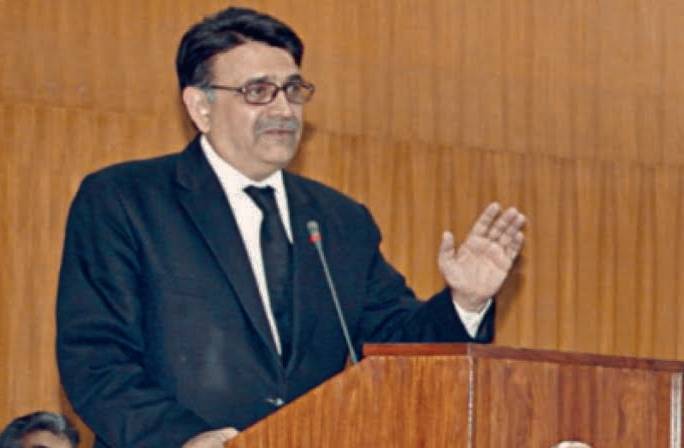
The Supreme Court of Pakistan (SC) has decided 1,164 cases during the last 15 days – from 15 January to 31 January 2023 – while allowing a total of 879 new cases to be filed. However, Chief Justice of Pakistan (CJP) Mr. Justice Umar Ata Bandial could only reduce the number of cases pending in the apex court from 53,624 to 51,929 after holding the top office for one year.
Since 16 January, 2,084 cases were fixed before different benches, of which 635 cases were dismissed while 253 petitions were allowed. The SC decided 22 cases, while leave to appeal was granted in 110 cases during the last 15 days of January 2023.
Unlike his predecessors, the pendency of cases did not increase during CJP Bandial’s one-year tenure. The CJP constituted several benches to hear different cases, notifying nine of them during the past week.
Moreover, the Supreme Court of Pakistan is still short of two judges. Controversy regarding the appointment of apex court judges has dominated CJP Bandial's one-year tenure, as elements of 'judicial politics' continue to be identified in the appointment of apex court judges.
Senior SC judges, who are also members of the Judicial Commission of Pakistan (JCP), remain divided on the elevation of high court judges to the apex court. The bar councils of the superior courts also oppose the elevation of junior judges, saying they support the 'seniority principle' for judges’ appointments to the SC.
It may be noted that the federal law minister and the attorney general for Pakistan have supported the chief justice’s nominees for the elevation to the Supreme Court.
Sources confirm that the situation in the Sindh High Court (SHC) is deteriorating after the court's junior judges were elevated to the Supreme Court. Senior SHC judges are reportedly 'frustrated' because of this development.
Legal experts continue to call for necessary amendments to the JCP rules, in order to ensure transparency in the judges' appointment process. It has also been noted that the chief justices do not summon JCP meetings until they are sure that a majority of the commission's members will endorse their nominees.
In the current scenario, the CJP requires the government representatives’ support for the approval of junior judges’ elevation to the top court. This has left many senior lawyers puzzled, wondering as whether the appointment of supreme court judges is a matter of principle or ego.
Since 16 January, 2,084 cases were fixed before different benches, of which 635 cases were dismissed while 253 petitions were allowed. The SC decided 22 cases, while leave to appeal was granted in 110 cases during the last 15 days of January 2023.
Unlike his predecessors, the pendency of cases did not increase during CJP Bandial’s one-year tenure. The CJP constituted several benches to hear different cases, notifying nine of them during the past week.
'Politics' of judicial appointments
Moreover, the Supreme Court of Pakistan is still short of two judges. Controversy regarding the appointment of apex court judges has dominated CJP Bandial's one-year tenure, as elements of 'judicial politics' continue to be identified in the appointment of apex court judges.
Senior SC judges, who are also members of the Judicial Commission of Pakistan (JCP), remain divided on the elevation of high court judges to the apex court. The bar councils of the superior courts also oppose the elevation of junior judges, saying they support the 'seniority principle' for judges’ appointments to the SC.
It may be noted that the federal law minister and the attorney general for Pakistan have supported the chief justice’s nominees for the elevation to the Supreme Court.
Senior judges 'frustrated'
Sources confirm that the situation in the Sindh High Court (SHC) is deteriorating after the court's junior judges were elevated to the Supreme Court. Senior SHC judges are reportedly 'frustrated' because of this development.
Legal experts continue to call for necessary amendments to the JCP rules, in order to ensure transparency in the judges' appointment process. It has also been noted that the chief justices do not summon JCP meetings until they are sure that a majority of the commission's members will endorse their nominees.
In the current scenario, the CJP requires the government representatives’ support for the approval of junior judges’ elevation to the top court. This has left many senior lawyers puzzled, wondering as whether the appointment of supreme court judges is a matter of principle or ego.

